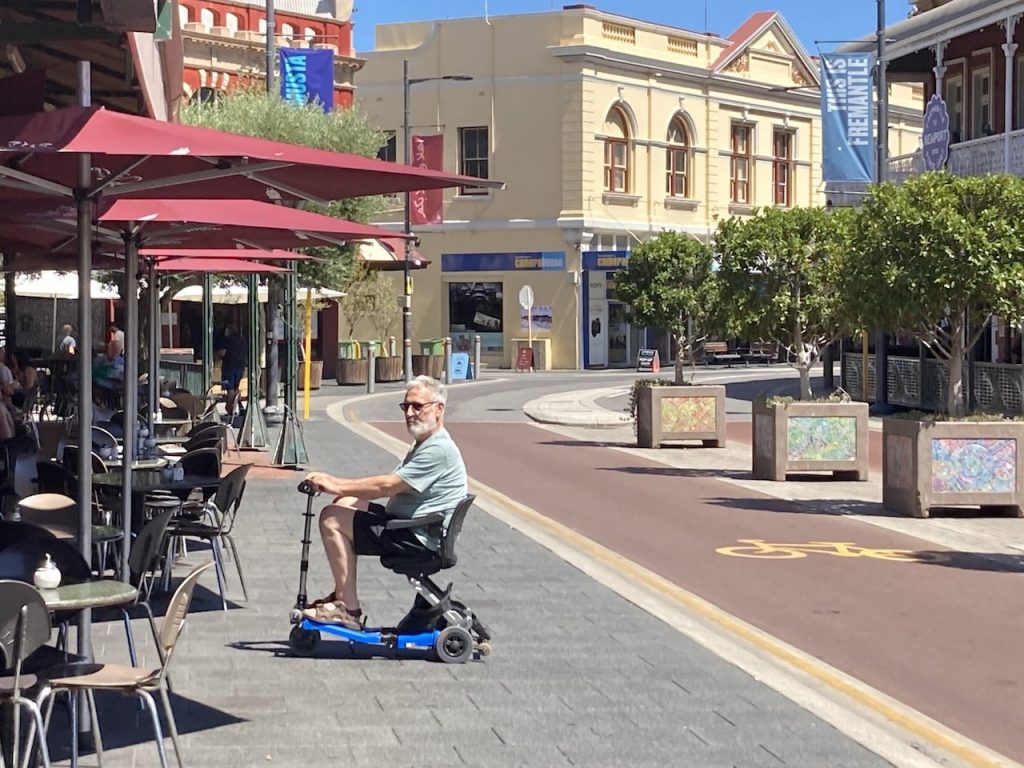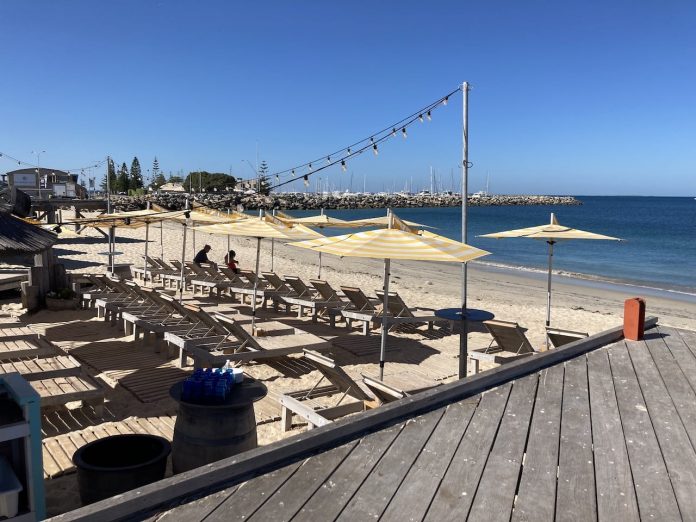Nearly 50 per cent of seniors have a disability at some stage in their lives, usually a mobility problem. They get about with the help of Zimmer frames, walkers, walking sticks, mobility scooters and wheelchairs all of which have limitations. But being disabled should not make travel, tourism and sightseeing impossible.
The disabled tourist market is one cities and hospitality venues ignore at their peril.
Cities vary in the extent to which buildings, pavements and roads are modified or designed for universal accessibility. One might forgive Fremantle for lagging behind others because of its ancient buildings and road network. But you would be wrong.
Last month my wife and I decided to celebrate our wedding anniversary with a 24 hour trip to Fremantle. My walking requires a walking stick and is very slow, so I took along my mobility scooter, a Luggie Elite, which is foldable and lightweight for carriage in a car boot. I was pleasantly surprised.
Our first stop was the Viking exhibition at the Maritime Museum. Access was easy with push button opening doors. Although I could have seen the whole exhibition from my scooter, I opted to park it in the building and walk slowly round the exhibits with my collapsible walking stick, to avoid running down other visitors.
We booked a room at the Hougoumont Hotel in Bannister Street. The hotel was recently opened in the refurbished Duke of York hotel with additional accommodation made from sea containers, although you would not know that from the inside.
The hotel upgraded us to a state room with disable accessible shower and toilet on discovering that I was disabled. Later they found out it was our wedding anniversary and sent us a complimentary bottle of wine in an ice bucket with two wine glasses.
Going out for a meal that evening was a doddle. Fremantle pavements are generally flat and scooter-friendly and kerbs are dropped at corners to allow scooters, wheelchairs and prams to easily get from road to pavement.

In many cities scooter rides are interrupted by the need to lift the scooter past obstacles, drains and kerbs. The only time this was necessary in Fremantle was due to a pavement blocked by building work. I dismounted and my wife, with the assistance of a passer-by, lifted the scooter from pavement to the road surface.
At the Angel’s House French restaurant we folded the scooter and staff found a place for it in the 120-year-old building. After the meal we retrieved the scooter and took a ride through Cappuccino strip and down High Street to the West End with only one dodgy section of pavement which sloped towards the road. My scooter has a very narrow wheelbase and riding across slopes can be hazardous.
The following morning, we explored Bather’s Beach, Fremantle boat harbour, the Esplanade, Fremantle Markets and Cappuccino strip again. I was able to ride through the markets and even into a shop, although Dôme café, housed in a 1901 Fremantle Literary Institute building, was more of a challenge.
Fremantle accessibility and my mobility scooter meant I cold enjoy ‘walking’ round the city and visit the sites at least as well as those who are not mobility challenged. I could even carry my wife’s purchases for her.
Fremantle has joined my list of accessible cities along with Graz, Vienna, Innsbruck and (with reservations) Oslo.



































